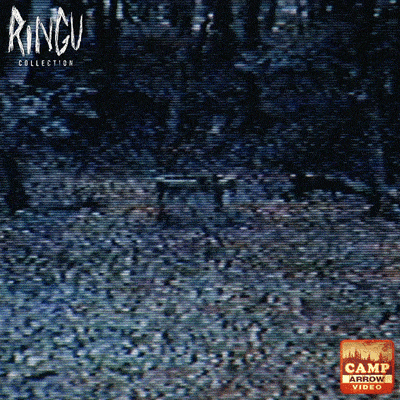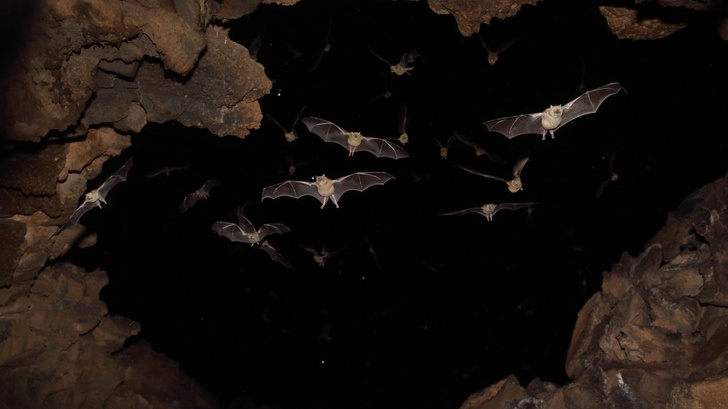Pumpkin spice lattes are in hand and Halloween is just around the corner. But before you go looking elsewhere for a good scare or a little magic, you may not need to look any further than your own culture.
The diaspora is filled with superstitions, folklore and practical Black-folk magic that's still in use today.
1. Blue Bottle Trees
#HoodooHeritageMonth Blue bottle trees???? When the enslaved arrived in the U.S., they created bottle trees on large limbs next to their quarters & adorned them with bottles. Blue bottles were coveted, because they repelled evil & trapped night spirits to be destroyed by the sun. pic.twitter.com/Op5xQ7oOIp
— Witchdoctoralex (@witchdctralex) October 28, 2020
It’s possible you’ve seen them and didn’t know what they were, or maybe you have one in your yard without being aware of the history. Blue bottle trees, made up of natural or man-made trees dressed with cobalt colored bottles, are not uncommon in rural or suburban yards, but their roots can be traced back to enslaved Africans, originating from Kongo/Angola, according to the Encyclopedia of African American History.
When those enslaved made it to the American south, what could have been pots or conch shells used in pre-colonial West Africa to keep evil spirits away in turn transformed into bottles. Blue was a particularly powerful color to keep unwanted spiritual visitors at bay.
“Adherents believed that evil spirits would become entranced by the spectrum of colors and lights reflected on and inside the bottles by the sun, thus trapping the spirit for eternity.”
One such spirit repelled by blue bottle trees is the Plat-eye of the Gullah-Geechee, a shape-shifting spirit of someone wronged while living that returned to cause trouble. To keep the spirit away, you should carry around a small burlap sack filled with equal parts sulfur and gunpowder, according to Black Southern Belle. But if the plat-eye manages to make its way to you and you have a blue bottle tree, it'll be trapped and destroyed by the morning sunlight.
2. Got My Mojo (Bag) Working
The proverbial “good luck charm” spans across time and cultures, but if you want to get your mojo working that’s distinct from the diaspora. A mojo-bag, also known as a “gris gris,” is a traveling bag of magic (filled with blessed items) created for a specific purpose, like bringing wealth, love or stopping gossip.
In the United States this amulet was used by enslaved Africans in the South who practiced hoodoo or voodoo, but of course it originates in the motherland. There’s a consensus that “gris gris” is derived from the Central African word “gri-gri” or “gree-gree,” which means fetish or charm, according to Magic's in the Bag. Meanwhile, “mojo” is derived from the West African “mojuba,” which means prayer.
Ever since I got the gris-gris bag supposedly blessing me with money down New Orleans last month money has been coming from all kinds of avenues ???? #Thankful
pic.twitter.com/1v9siwLPg5— ☆Rest Easy Nip☆ (@Ms_Kushington) April 17, 2019
3. Beware of The Jamaican Duppy Bat
A duppy bat pitch pon 2 people head today during the fire drill. My coworkers were laughing and I was there like pic.twitter.com/AUfdh8Iy1t
— Tubz Bordelon (@TubbyFiasco) February 1, 2017
No one wants flies in the house, but you especially wouldn’t want to see the black witch moth, also known as the duppy bat in Jamaican folklore. A harbinger of bad luck, a duppy bat sighting embodies an evil spirit intent on bringing drama or a lost soul, according to ABC News. Generally, in the Caribbean, the word “duppy” is associated with ghosts or supernatural spirits.
This big duppy bat fly ina mi room pic.twitter.com/eWRFLq7GRG
— Gandalf the White (@tricksybear) August 14, 2019
4. Lucky New Year's Meal
Y’all, double down on your New Years Day lucky meal! pic.twitter.com/QvKIw8Uflr
— Damon Wofford Realty (@WeLeaseHomes) December 30, 2020
Time goes by so quickly that the new year is practically around the corner. And considering this past year, we need all the good graces we can get! A lucky new year’s meal of greens (for money), black-eyed peas (for luck) and pork (for prosperity) is a staple in many Black homes for the new year. Though known as general Southern cuisine, the black-eyed pea is actually native to Africa.
It’s believed that traffickers brought the bean with them to appease enslaved West Africans during the middle passage and after their arrival, the Washington Post reports. Because the culture makes a way out of no way, what was given to those as meager rations was transformed into a delicious dish still served today.
5. Nigerian Water Spirits At Night

Access to water in Nigeria can still be considered challenging, but if there is a well available, you may want to think twice about using it after the sun sets. According to Nigerian folklore, especially for the Yoruba people, fetching water from the well (known as Konga) at night could repay you with a proper slap from an evil spirit that hangs out by the watering hole.
6. Don’t Touch My Baby Bump In Liberia

For ages, expectant mothers have had to deal with unsolicited touching from admirers drawn in by their baby bumps. In recent years, conversations on physical boundaries for pregnant women and touching without consent have become more widespread.
In fact, in 2013, a Pennsylvania man found himself brought up on charges after rubbing his pregnant neighbor's belly. While unwanted touching from strangers is generally awkward and rude, Liberian superstition says there’s another reason women with baby bumps should guard themselves.
It’s believed that evil spirits have the ability to take a baby from the womb with a stranger’s touch, according to Woman’s Day. The privilege of touching a baby bump should only be reserved for close friends and family.
7. General Superstitions I Wouldn't Test
My right hand been itching like crazy these days ????????????????
Promotion? Is that you? ???? pic.twitter.com/AVkMIkYC4P
— jONELL (@DeePHIne9) June 11, 2021
Though not all of our superstitions can be traced, that doesn’t stop them from being very much relevant and practiced today. The University of South Carolina’s library cites a 1936 list of common superstitions in African American folklore as source material for Zora Neale Hurston’s classic novel Their Eyes Were Watching God.
“The Negroes are generally conceded with originating and preserving the superstitious signs which the writer has observed to occupy a real place in the lives,” the document reads.
Some of those practices include the familiar: if your right hand itches, you will receive money; if you break a looking glass you will have seven years trouble and if a bird flies in the house, it’s a sign of death.
Then there’s some of the more unusual ones like, “If you meet a squint-eyed owl and it begins to hollow, turn your pocket inside-out and twist it around and the owl will stop.” Or, “If a cold chill runs through you, a rabbit jumped across your grave.”
The superstitious practices of the diaspora are often regional and unending. And while it may be safe to assume that most of us have never had the misfortune of running into a squint-eyed owl, most people I know wouldn’t take a chance with putting their purse on the floor.
